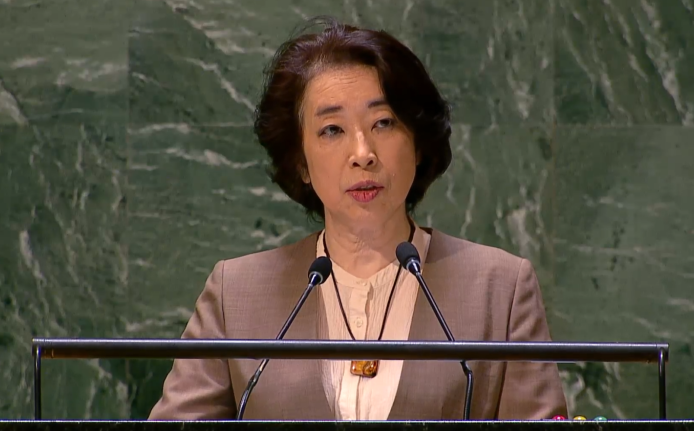拒否権に関する総会討論における志野大使ステートメント
令和6年4月23日

(Check against delivery)
This year marks the second anniversary of the adoption of General Assembly resolution 76/262, the so-called “veto initiative.” As we have seen the repeated use of the veto over the past two years, we cannot stress enough the importance of this initiative, as a mechanism to hold the Security Council accountable to the entire UN membership.
Despite the clear mandate of the Council as the chief guarantor of the maintenance of international peace and security, it is a horrible reality that a permanent member has invaded another sovereign state in violation of the UN Charter while protecting its own national interest by the use or threat of use of the veto. Member States have witnessed the Council unable to take necessary actions on the some of the most critical issues of the day, which has significantly undermined the legitimacy of the Council and the UN as a whole.
This must be rectified.
The “veto initiative” is important, but it is a retroactive measure and unfortunately, in our view, not sufficient to deter the use of the veto. The majority of the Member States believe that, at a minimum, it is necessary to introduce measures to limit the use of the veto in certain circumstances – the “Political Declaration on Suspension of Veto Powers in Cases of Mass Atrocity” initiated by France and Mexico, as well as the ACT Group’s “Code of Conduct regarding Security Council action against genocide, crimes against humanity or war crimes,” are valuable initiatives for that purpose. We urge all permanent members of the Council who have not done so to commit to voluntary restraint on the use of the veto without delay, and, once committed, to implement it accordingly.
Mr. President,
The veto is another example of the existing imbalance within the Security Council on top of the permanency of the five States. We need to reform the Council as soon as possible, so that it can better reflect today’s reality rather than that of eighty years ago.
Colleagues, let us do that together.
Thank you.
